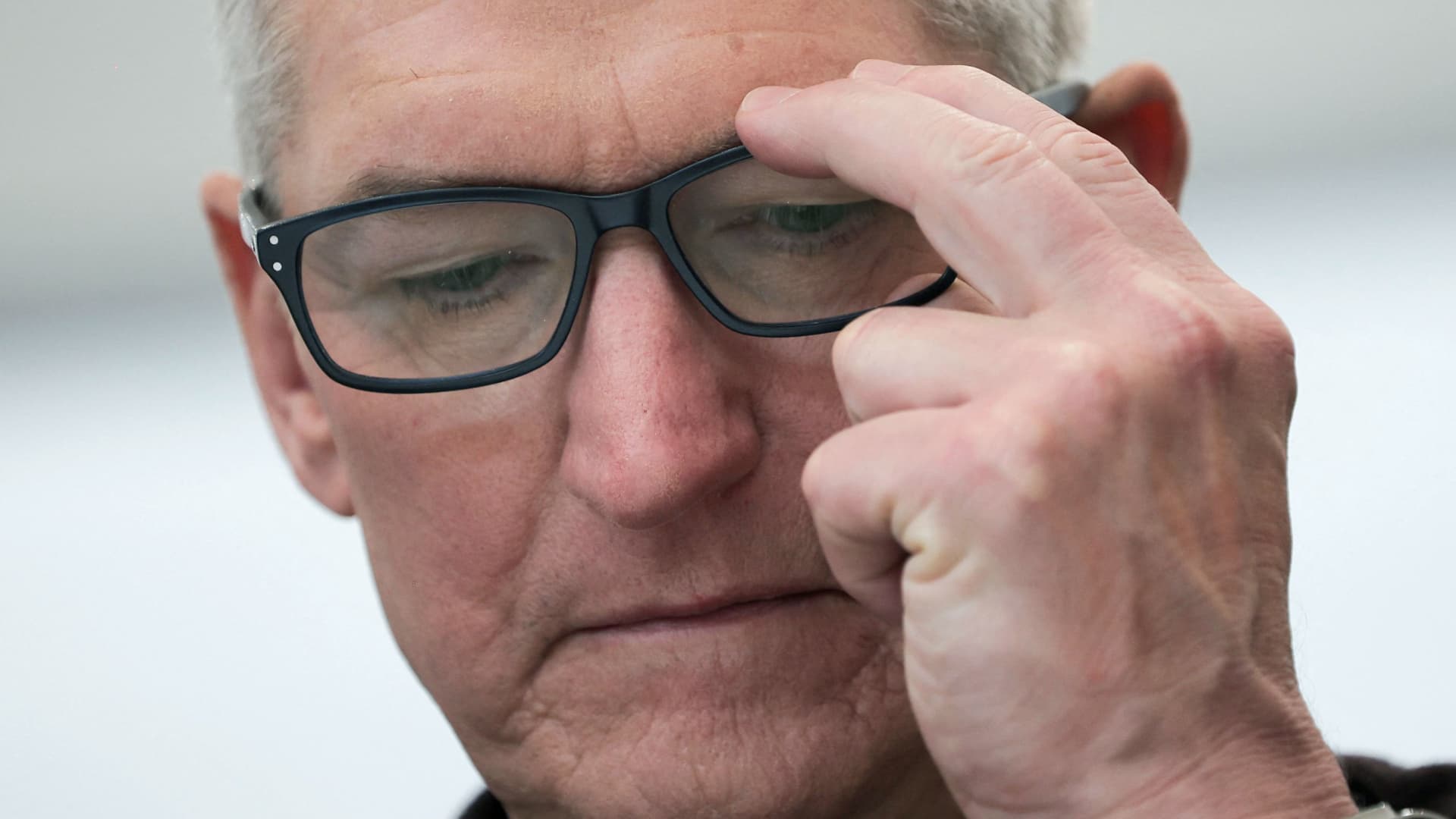
Apple CEO Tim Cook looks on during an Apple event at their headquarters in Cupertino, California, September 7, 2022.
Carlos Barria | Reuters

Apple CEO Tim Cook looks on during an Apple event at their headquarters in Cupertino, California, September 7, 2022.
Carlos Barria | Reuters
Cook’s relatively hands-off approach to a marquee project stands in stark contrast to his predecessor, Apple’s late founder Steve Jobs. Jobs was known for his obsessive focus on even the smallest details of a project, and worked closely with his top design executive, Jony Ive.
Cook’s approach is quite different. “He’s the complete opposite of Steve in terms of having strong opinions on the minutiae,” a person familiar told Bloomberg. Cook isn’t alone in keeping his distance, Bloomberg reported.
Top executives including Apple software chief Craig Federighi and hardware executive Johny Srouji have both shown concern about the project, Bloomberg reported. Federighi seemed “wary” and kept his distance, Bloomberg reported, citing people familiar, and Srouji compared the headset effort to a “science project.”
But executive concerns may not weigh as heavily on the project’s success as consumer response might. Apple made the decision to sell the headset product at cost as opposed to at a loss, as it originally planned to do, Bloomberg reported.
Apple has reportedly revised sales estimates down from 3 million a year to 900,000 a year, as the company has revised the headset’s form factor and utility.
Bloomberg reported that Ive, who departed from Apple in 2019 but remained involved in headset development until “about a year ago,” clashed with Mike Rockwell, the executive tasked with exploring “head-worn devices.”
Ive was reportedly pushing for a “maximally portable device,” close to how Cook envisioned the device. Rockwell’s team initially wanted a device that would rely on a base station the size of a Mac mini, an approach that other augmented and virtual reality manufacturers have shied away from.
Stand-alone glasses are now at least four years away after Apple decided to postpone any major product development in that arena, Bloomberg reported, citing people familiar.
One open question, and potentially the most significant concern, is how consumers will use it. Meta’s Oculus has struggled with some obstacles to adoption despite the company’s onetime bet-the-house approach to virtual reality; Magic Leap, another augmented reality firm, has pared back its vision significantly.